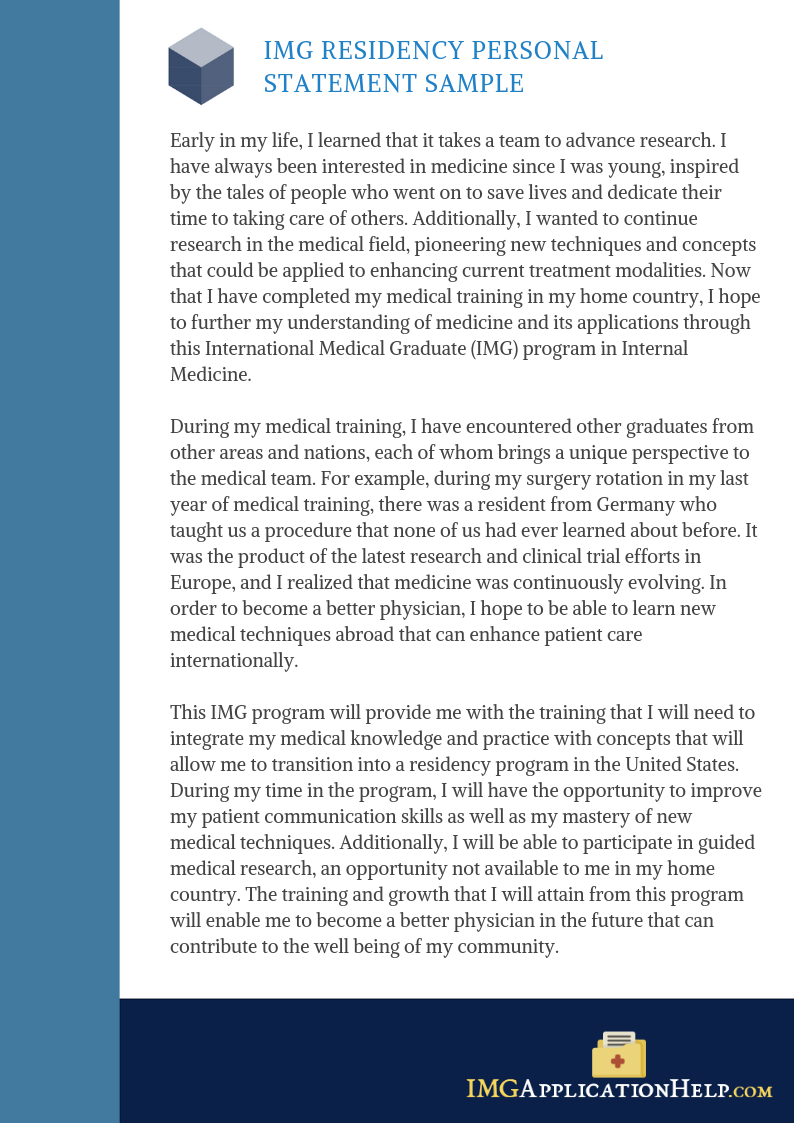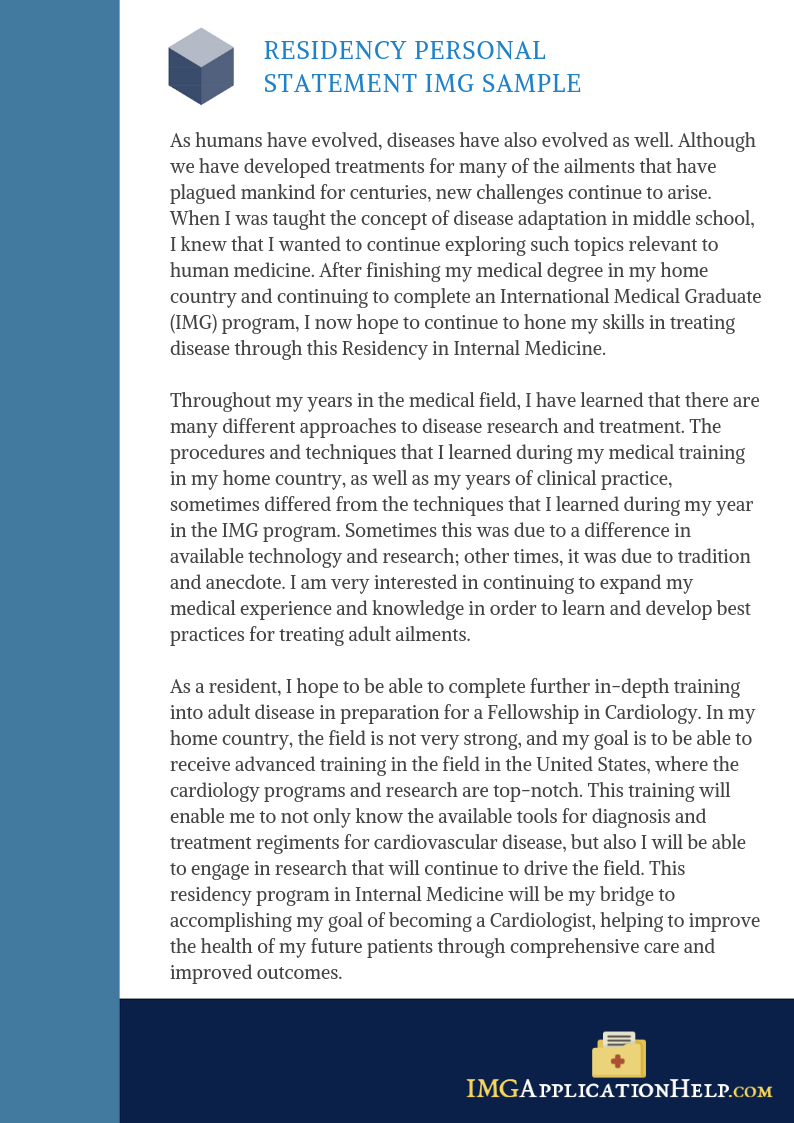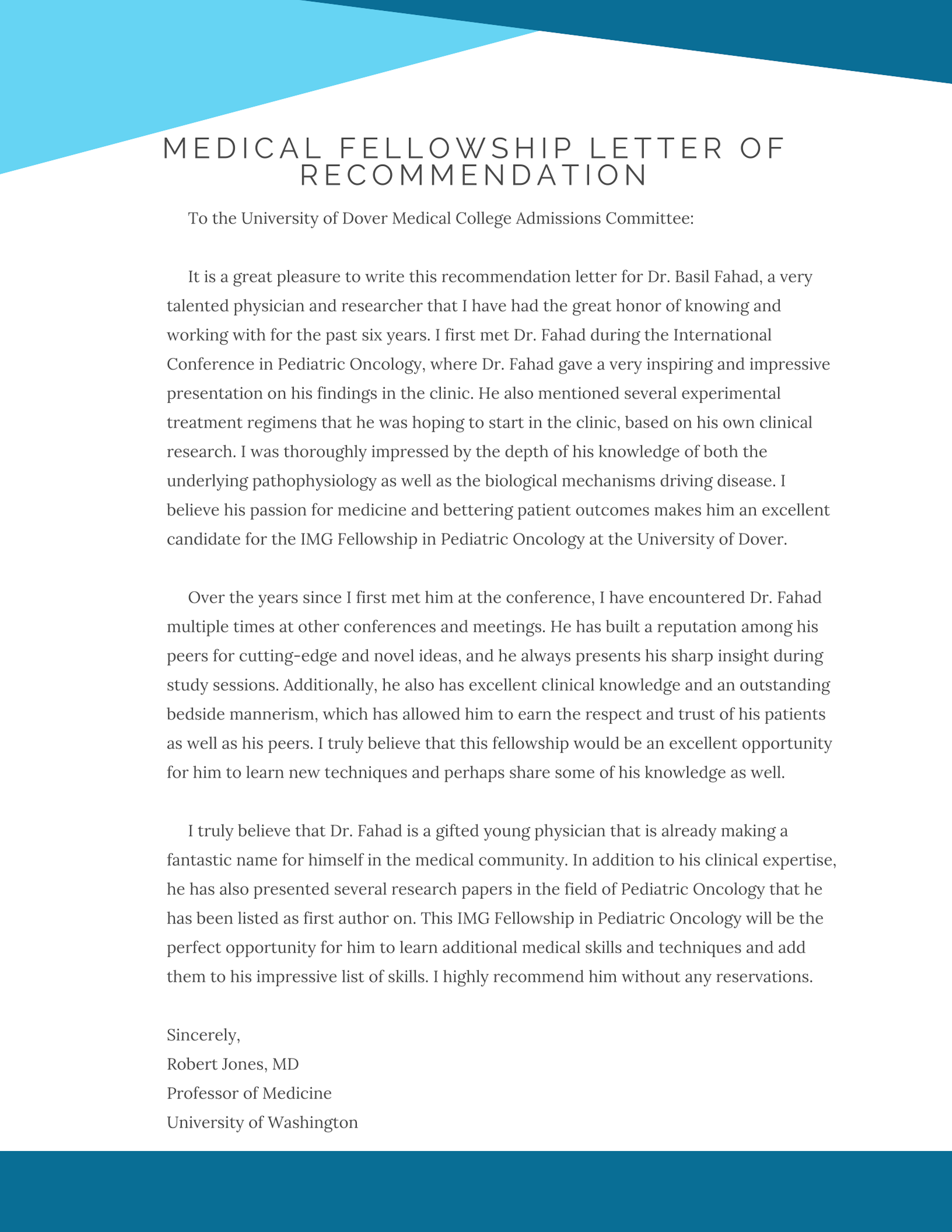


All You Need to Know about IMG Residency Programs
After ECFMG certification, physicians who wish to practice medicine in the United States must undertake accredited IMG residency programs in the United States or Canada regardless of the training they received overseas. The residency program process takes at least 3 years.
- Transitional programs rotate 1st-year residents through hospitals every 2–3 months. A transitional year residency for IMG program counts as 1 year of training, but it may not provide enough credits to move to the 2nd year of training.
- Preliminary programs are 1-year programs for those wishing to specialize and who need a year of internal medicine training.
- Categorical programs are considered more traditional and hospital-based. They are 3-year programs that may allow residents to train up to board eligibility if performance is satisfactory.
- Primary care programs provide increased emphasis on ambulatory care experience in the community and are becoming more prevalent. Those who are sure that they will be working as a generalist are advised to apply to a primary care program.

Tips for IMG Residency Application
Here are a few tips you should follow in order to apply for an international medical graduate program (these tips will perfectly work for externship for IMG application too!).
Most Popular IMG Residency Programs by Specialties
Here are some of the medical residency in USA IMG programs from which you can choose from:
- Family medicine residency program – The least competitive specialty where a big portion of the international medical graduates will be granted their residency match in the U.S.is the Family medicine residency program. It is a discipline encircling the study and practice of health promotion, disease prevention, diagnosis care and treatment of human beings ranging from infancy to old age, in health and all stages of illness. This residency training includes rotations in internal medicine, pediatrics, obstetrics-gynecology, psychiatry, and geriatrics. The specialty focuses on treating the whole person, acknowledging the effects of all outside influences through all stages of life.
- Surgery residency program – The Surgery Residency Program leads to eligibility for certification by the American Board of Surgery. In this program, broad exposure to the components of general surgery and to the surgical subspecialties is gained through rotations at various surgical hospitals and centers. The primary goal of the program is to produce superior clinical and academic surgeons who are trained in all facets of modern general surgery. Specifically, this training includes intensive exposure to surgery of the gastrointestinal tract, breast, head and neck, vascular system, endocrine system, trauma, cardiothoracic, pediatric surgery, transplant surgery, and surgical nutrition. Surgical residents are expected to be afforded a rich operative experience due to the volume and variety of surgical diseases throughout the U.S. hospital systems. Residents in this program are expected to perform an average of 100 cases during the first year and an average of 1200 cases over five years.
- Internal medicine residency program – Internal medicine residency program provides IMGs with essential knowledge in the medical specialty dealing with the prevention, diagnosis, and treatment of adult diseases. Physicians specializing in internal medicine are called internists. Internists are skilled in the management of patients who have homogenous or multi-system disease procedures. Due to the fact that internal medicine patients are often seriously ill or require complex investigations, Internists mainly care for hospitalized and ambulatory patients and do much of their work in hospitals. Internists often have subspecialty interests in diseases affecting particular organs or organ systems and may play a major role in teaching and research. Internal medicine is also a specialty within clinical pharmacy and veterinary medicine. Internists should however not be confused with interns who are doctors in their transitional year of residency training or those involved in pre-residency fellowships IMG programs that mirror that of a second-year anesthesia resident.
And there you have it! These essential features will help you wisely select the ideal residency program for your choice!
